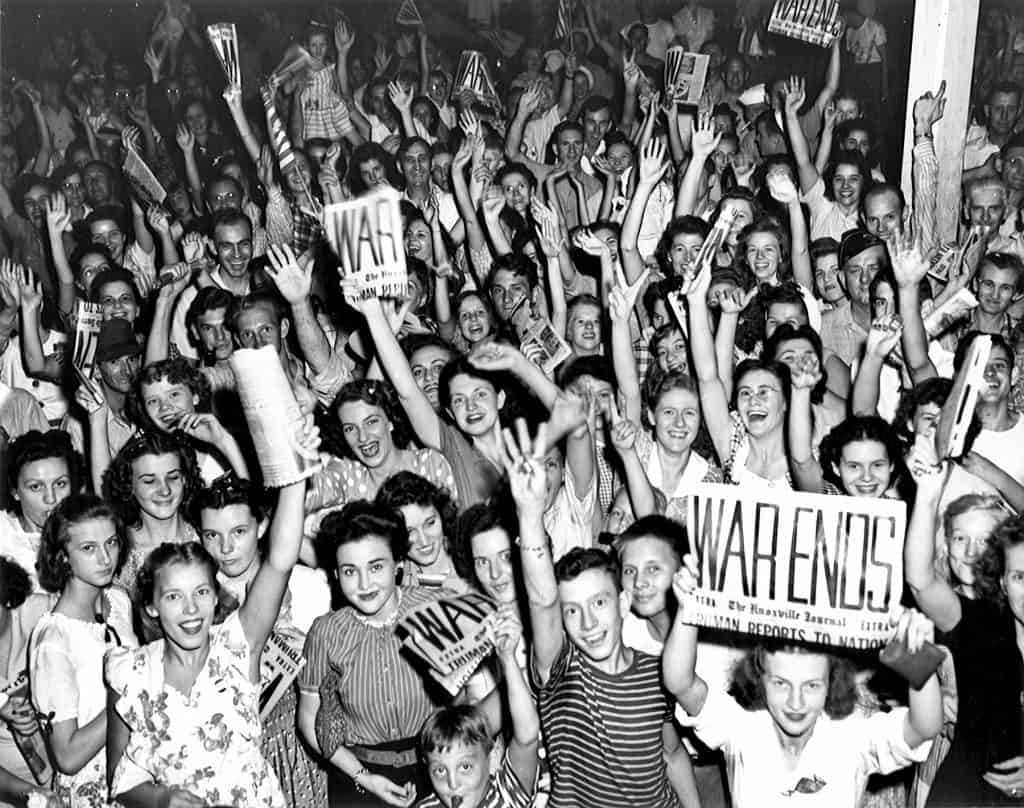
Wednesday, Sept. 2, was the 75th anniversary of V-J Day and the end of World War II. On that Sunday morning in 1945, Japan’s leaders, on the deck of the battleship USS Missouri, signed official surrender papers.
Emperor Hirohito’s announcement nearly three weeks before that Japan would accept the conditions of surrender had touched off celebrations of exuberant joy and heartfelt relief in every city, town and hamlet in this country. Our national sacrifice of blood and treasure, the loss of so many lives and human potential, had finally been rewarded with victory over our enemies’ despotism and totalitarianism, over their unimaginable cruelty.
Today, we look back across the decades and can only marvel at the nation’s sacrifice in the service of a common goal, of a common good. We scan the landscape around us today and see a pandemic that has claimed the lives of more than 186,000 of our fellow citizens and neighbors. We see protesters and counter-protesters clashing in the streets willing to shoot and kill rather talk and listen.
What happened to that spirit of cooperation and sacrifice that brought us victory in World War II? Like today, that too was a time when the world was convulsed in anger and hatred. That too was a time when the challenges we faced were monumental. But how did our grandmothers and great-grandfathers respond?
Millions put their lives on the line to preserve freedom and more than 400,000 Americans died doing so. Our soldiers, sailors and Marines, our WAVES and WACS, persevered through hardship and pain and fear and the emotional toll of war to fulfill our common national purpose: to help save the world.
And their families and friends back at home did their part too, even as they anxiously awaited a letter from a remote island in the Pacific or some small village in Italy or France that would let them know their loved one was still alive and whole. Without complaint they accepted the rationing of meat and sugar, tires and gasoline, coal and firewood, nylon and silk, dairy and coffee, jams and jellies, and a host of other items. They accepted all this because these were the ways they could support the war effort, these were the ways they could help the nation achieve its common goal, these were the ways they could help save the country and their countrymen.
They had learned to do without during the Great Depression and when the war came, they shouldered that burden as well.
Contrast that with today, when people have marched on state capitols carrying assault rifles because they have been told to wear a mask that will protect them and everyone they come into contact with from a deadly virus; when people have used peaceful protests against racism as permission to burn and loot. Where is that spirit of self-sacrifice that sustained our nation during the most deadly war in the history of the planet?
Jesus told us to love our neighbors as ourselves. As Catholics we believe we and our neighbors are united as the one Body of Christ. So to love our neighbors is to love ourselves. The Church encourages us to always keep as our goal and our guide the promotion of the common good, which in the “Compendium of the Social Doctrine of the Church” she defines as: “the sum total of social conditions which allow people, either as groups or as individuals, to reach their fulfilment more fully and more easily.”
As a nation, we have it within us to sacrifice our personal desires in favor of the common good, to be united in pursuit of a common goal. Our nation has done it before. We need only look to the example set by the Americans young and old, rich and poor, our grandmothers and our great-grandfathers, who won World War II.









